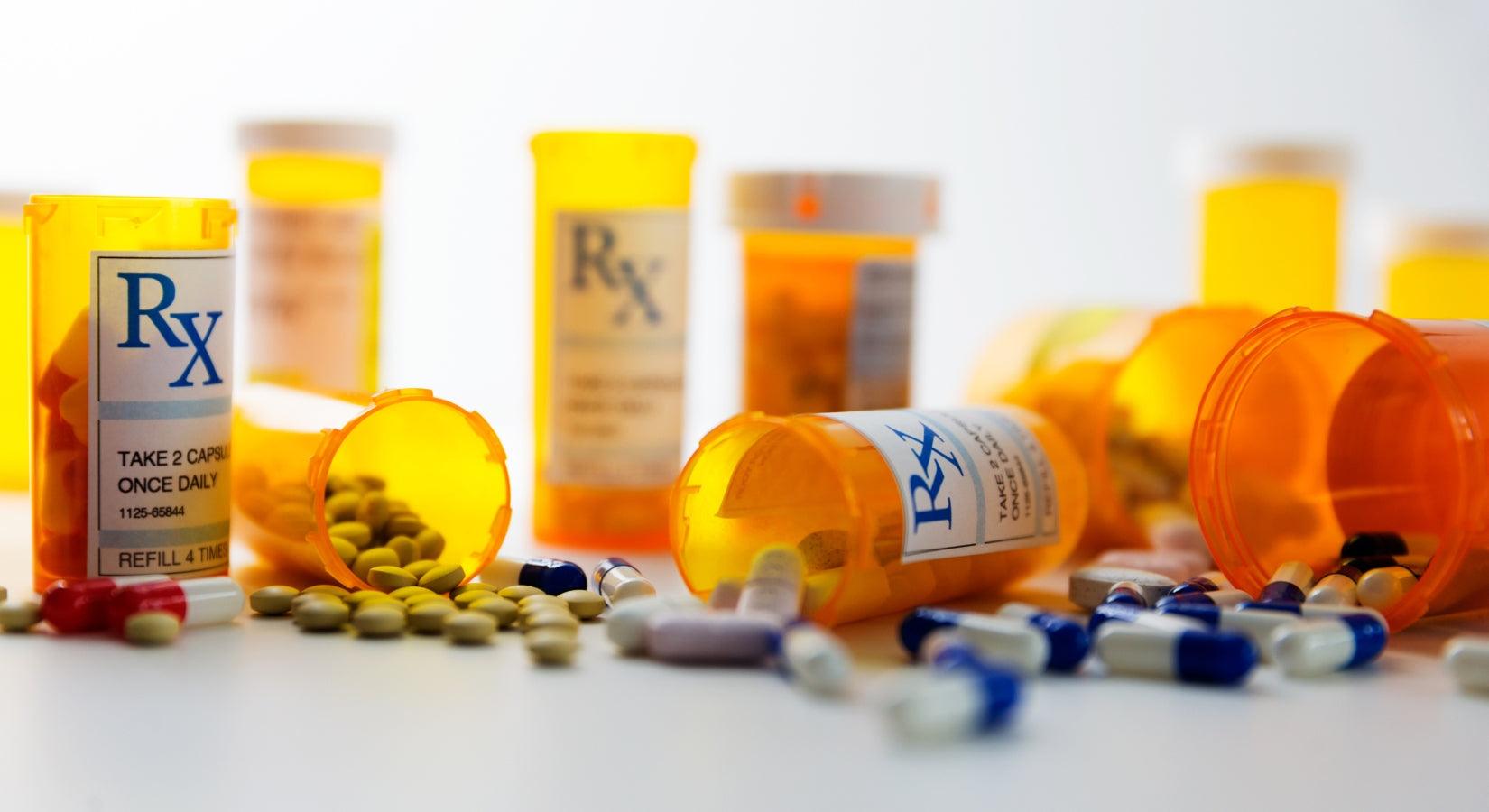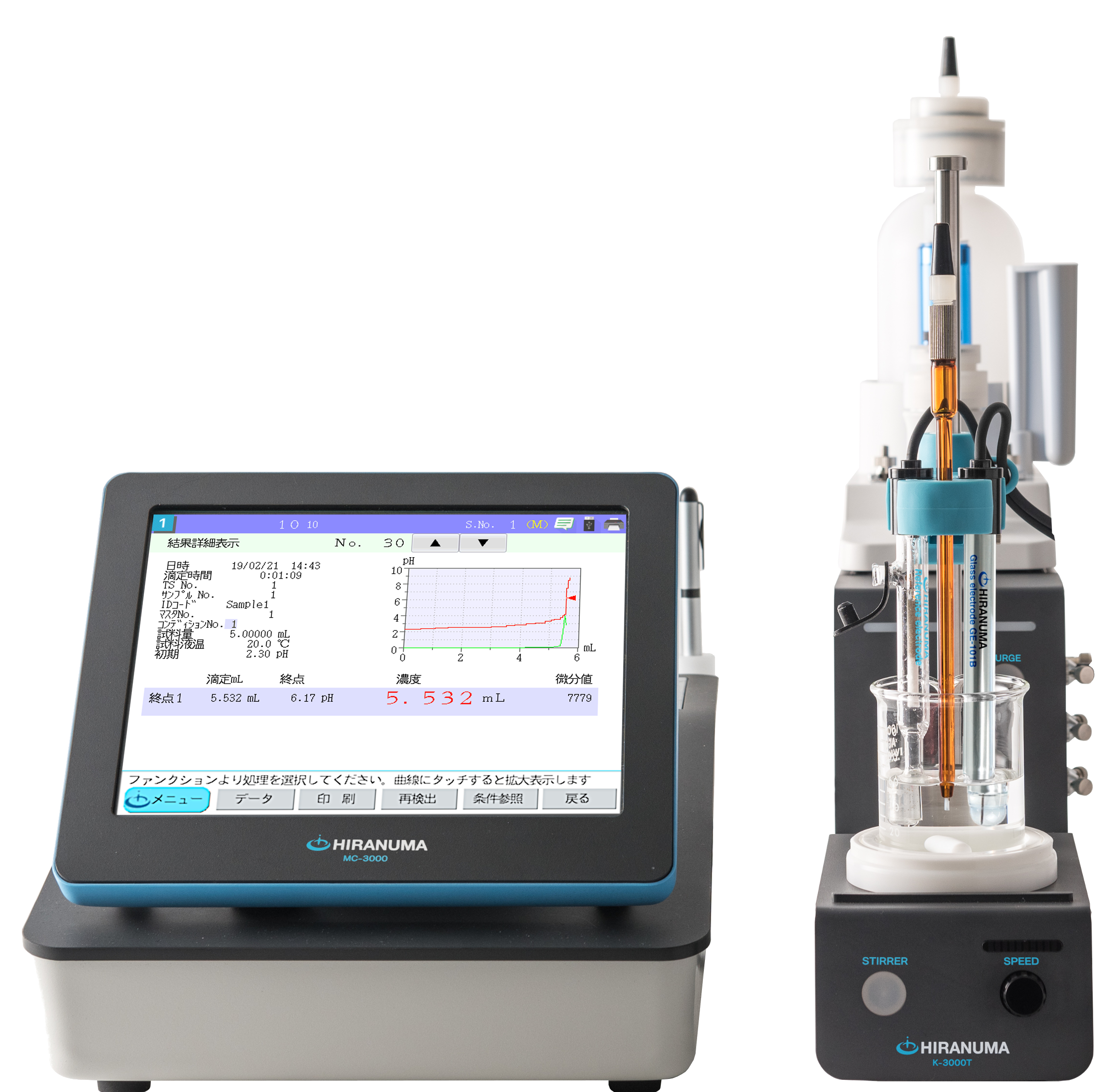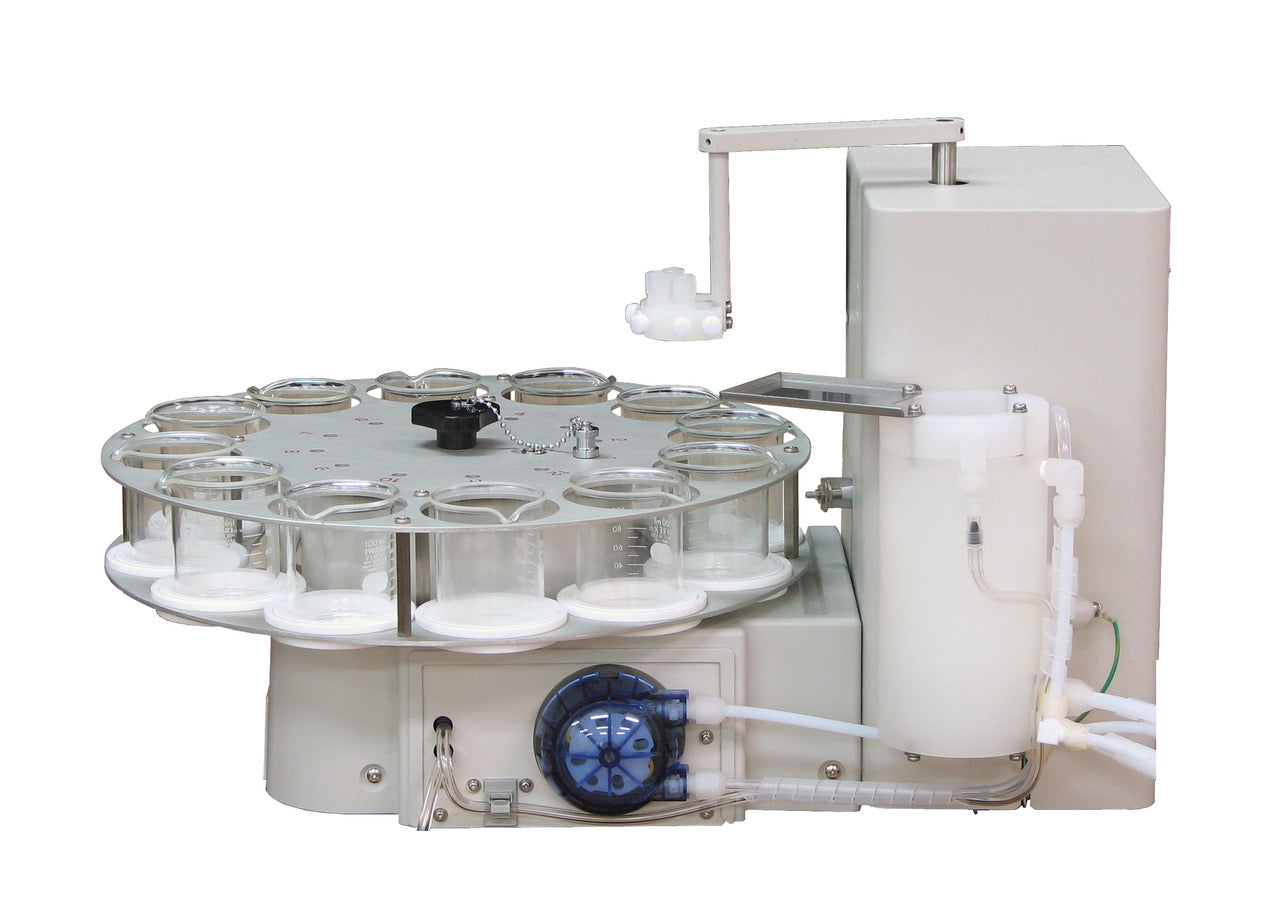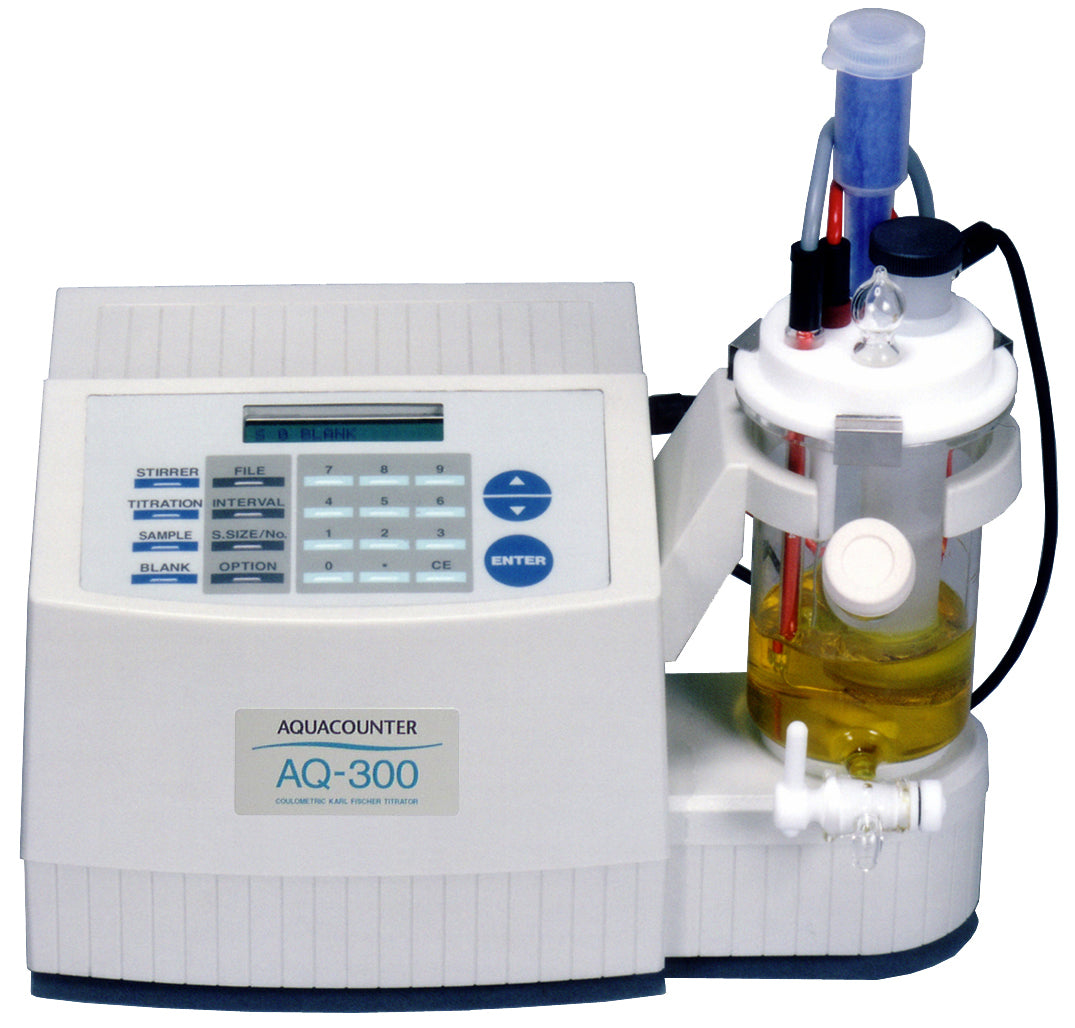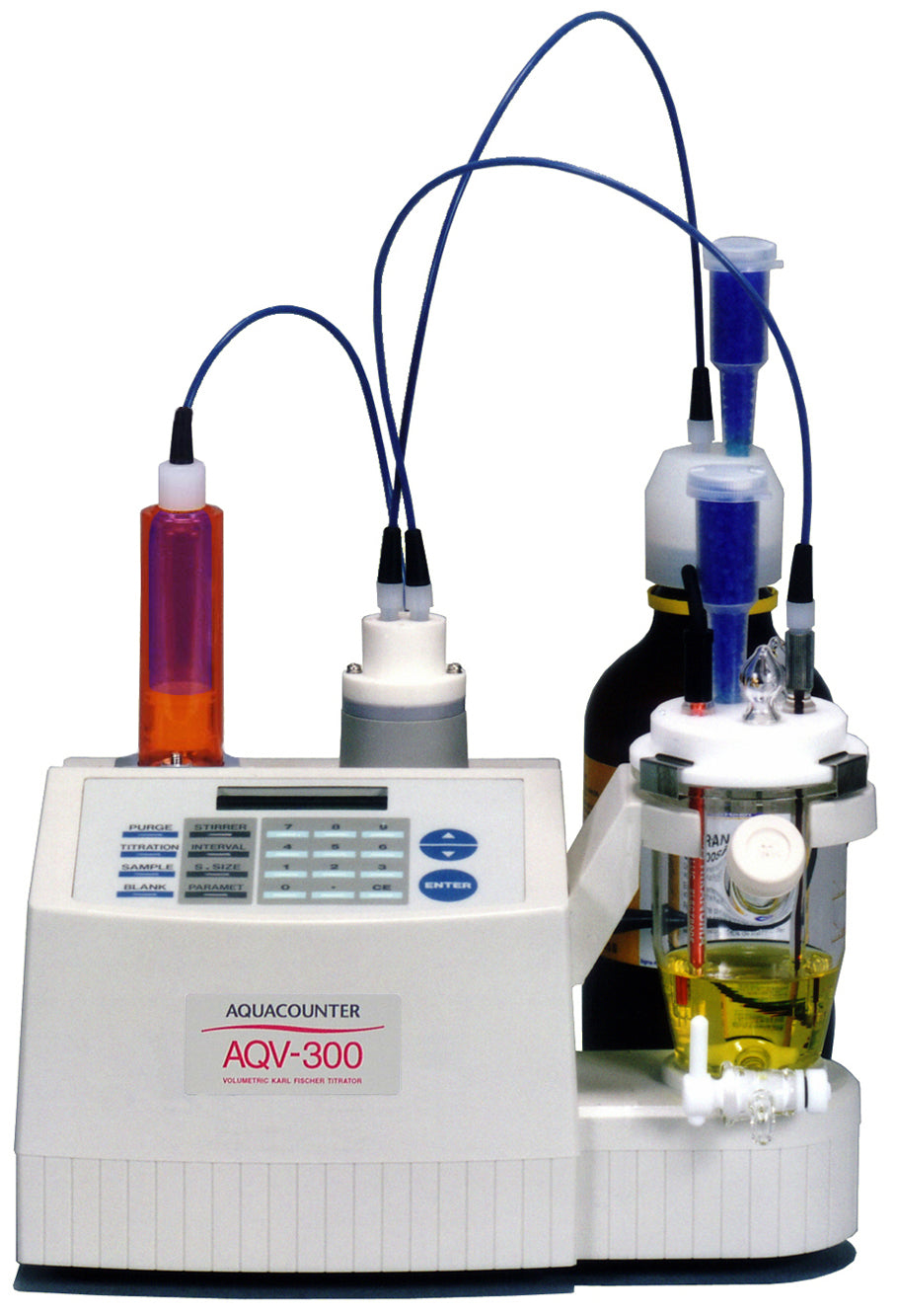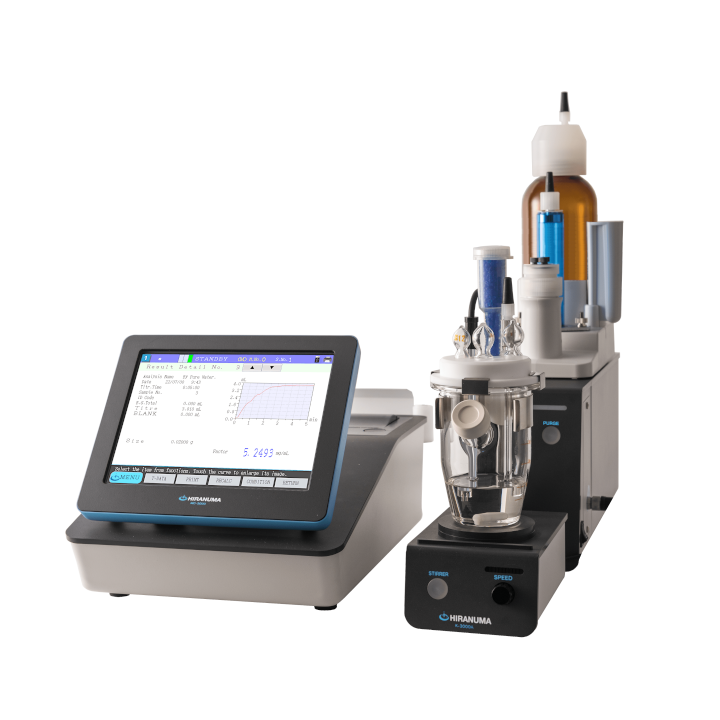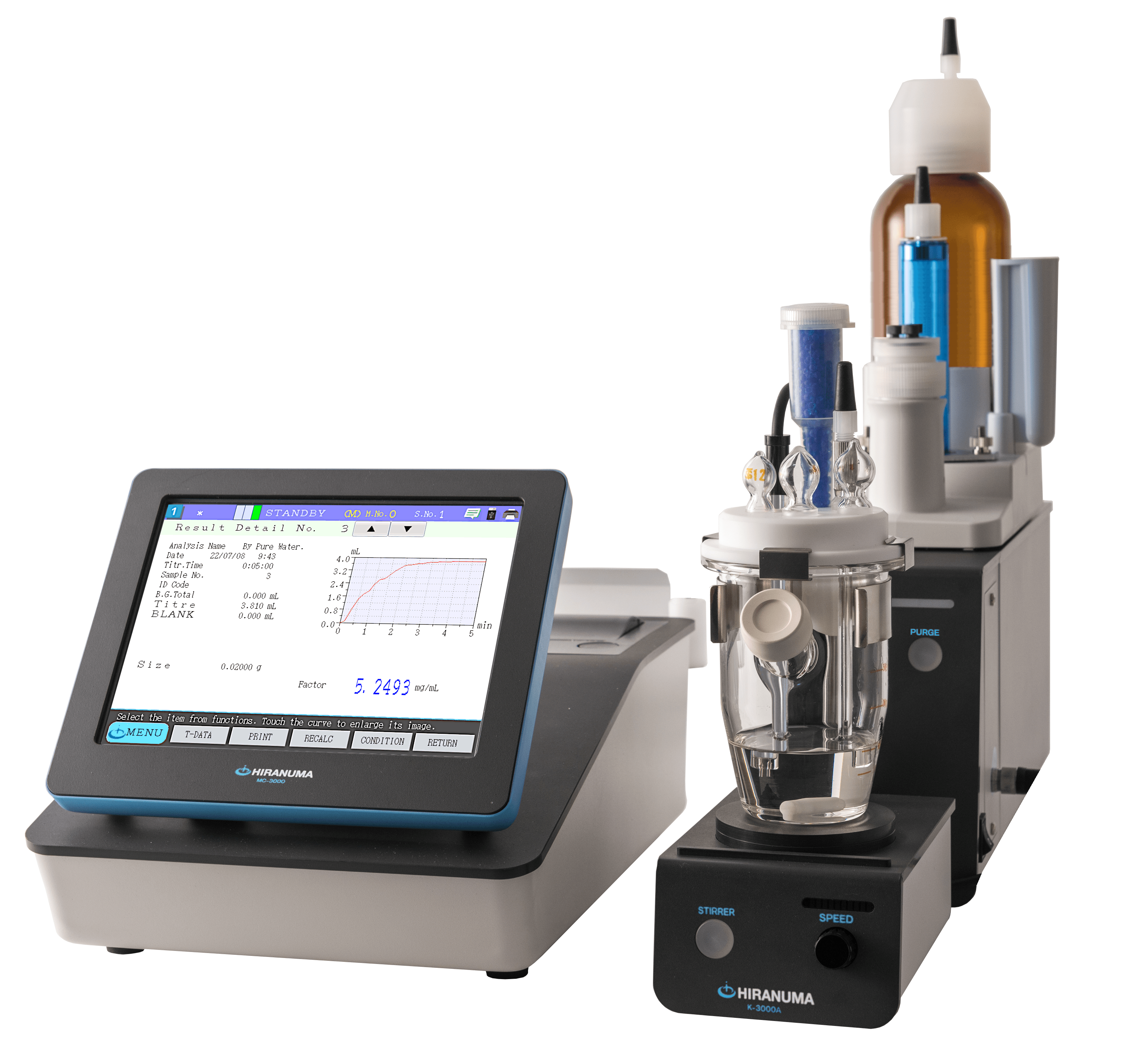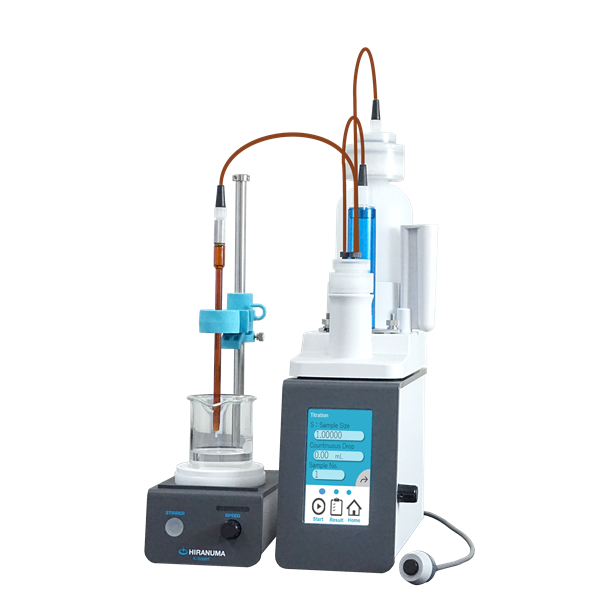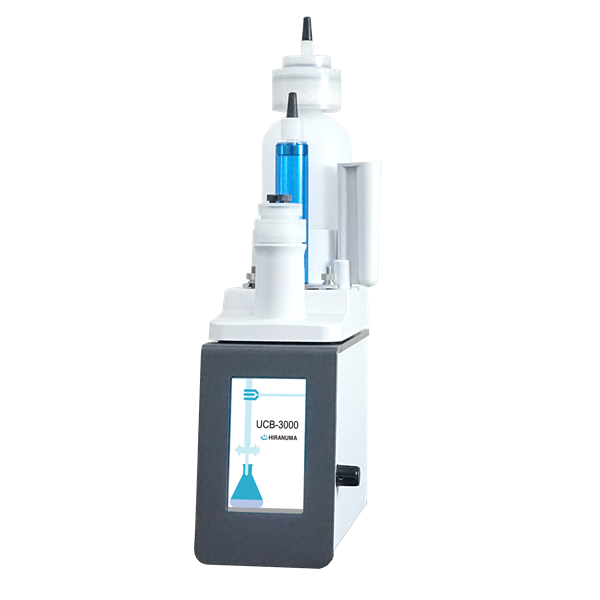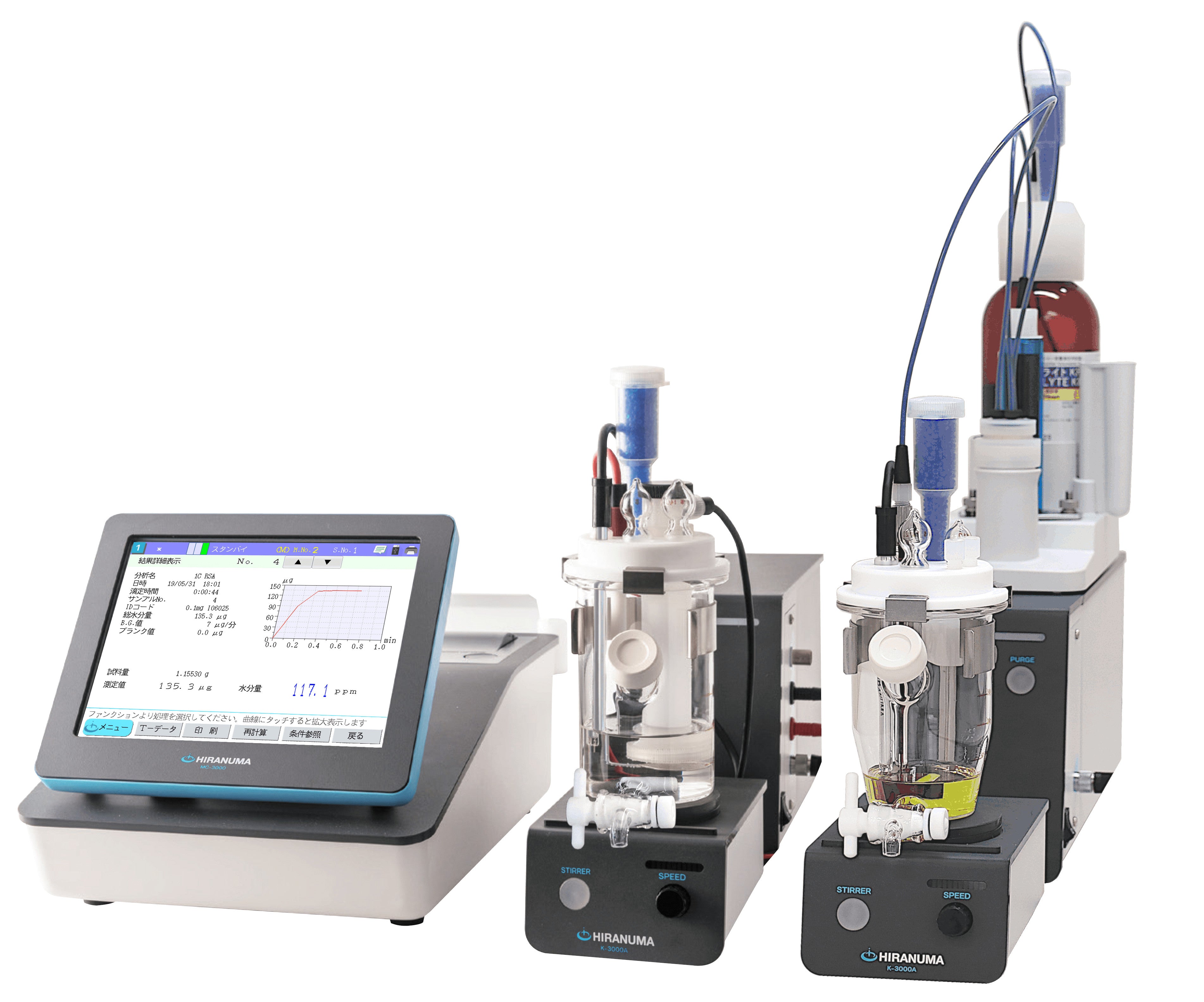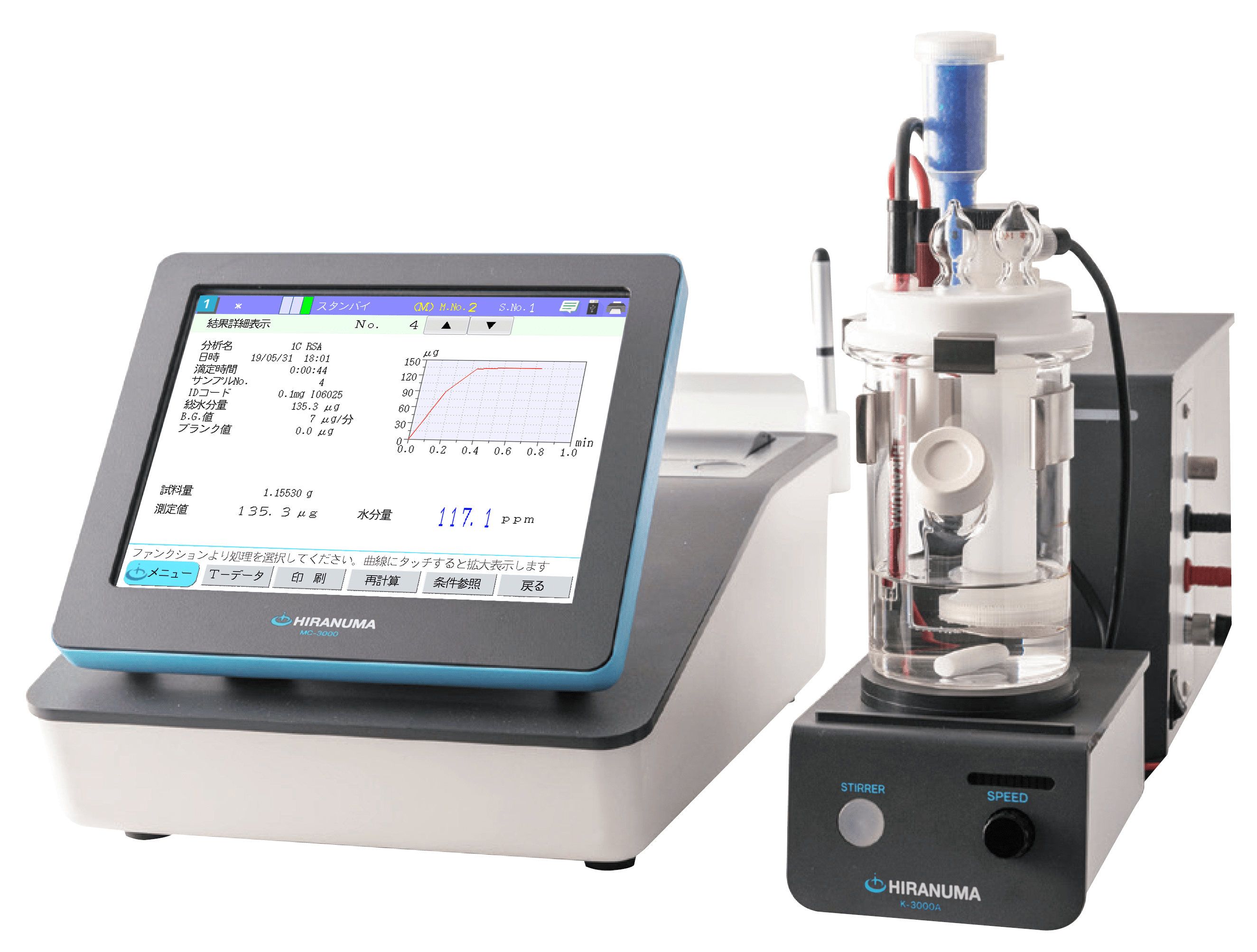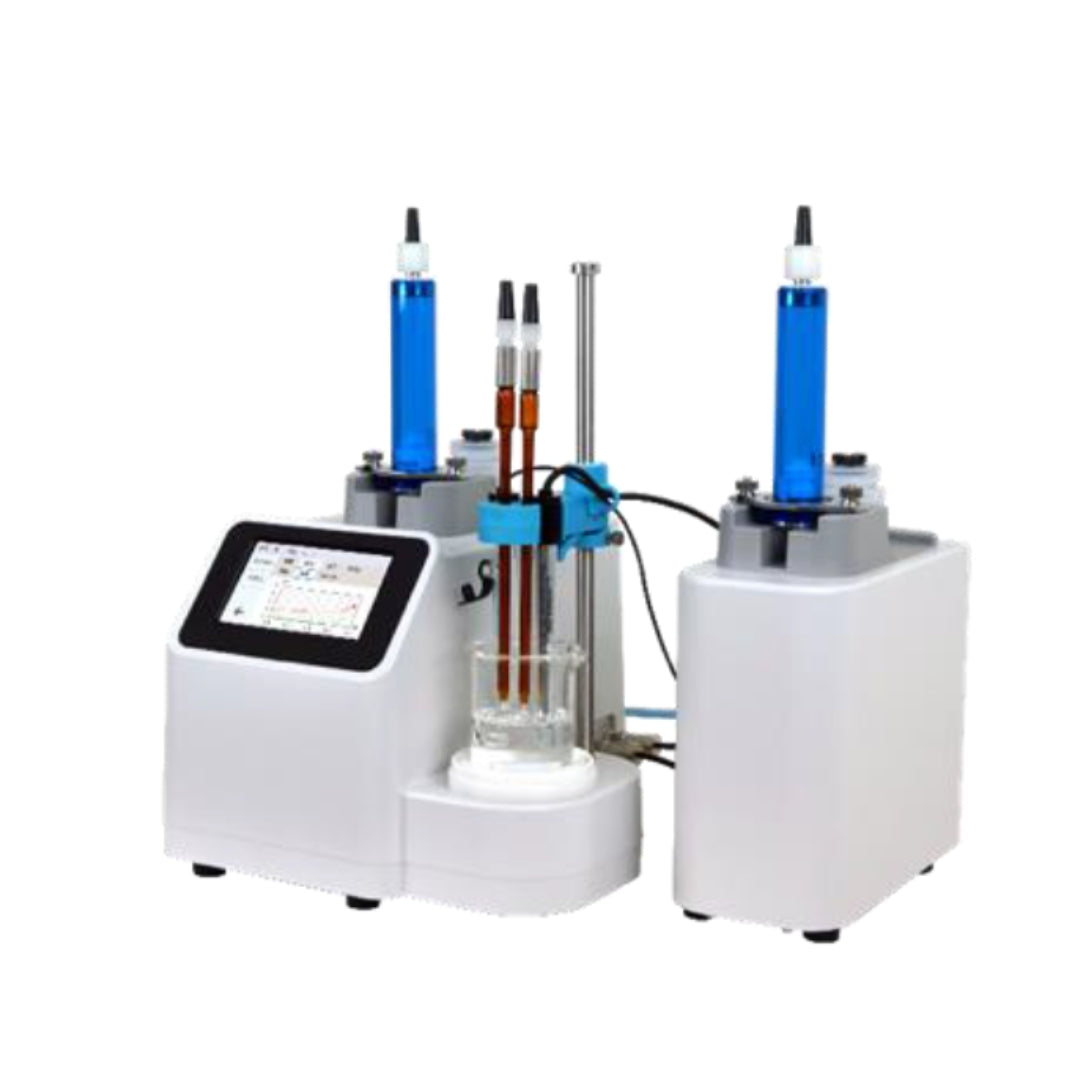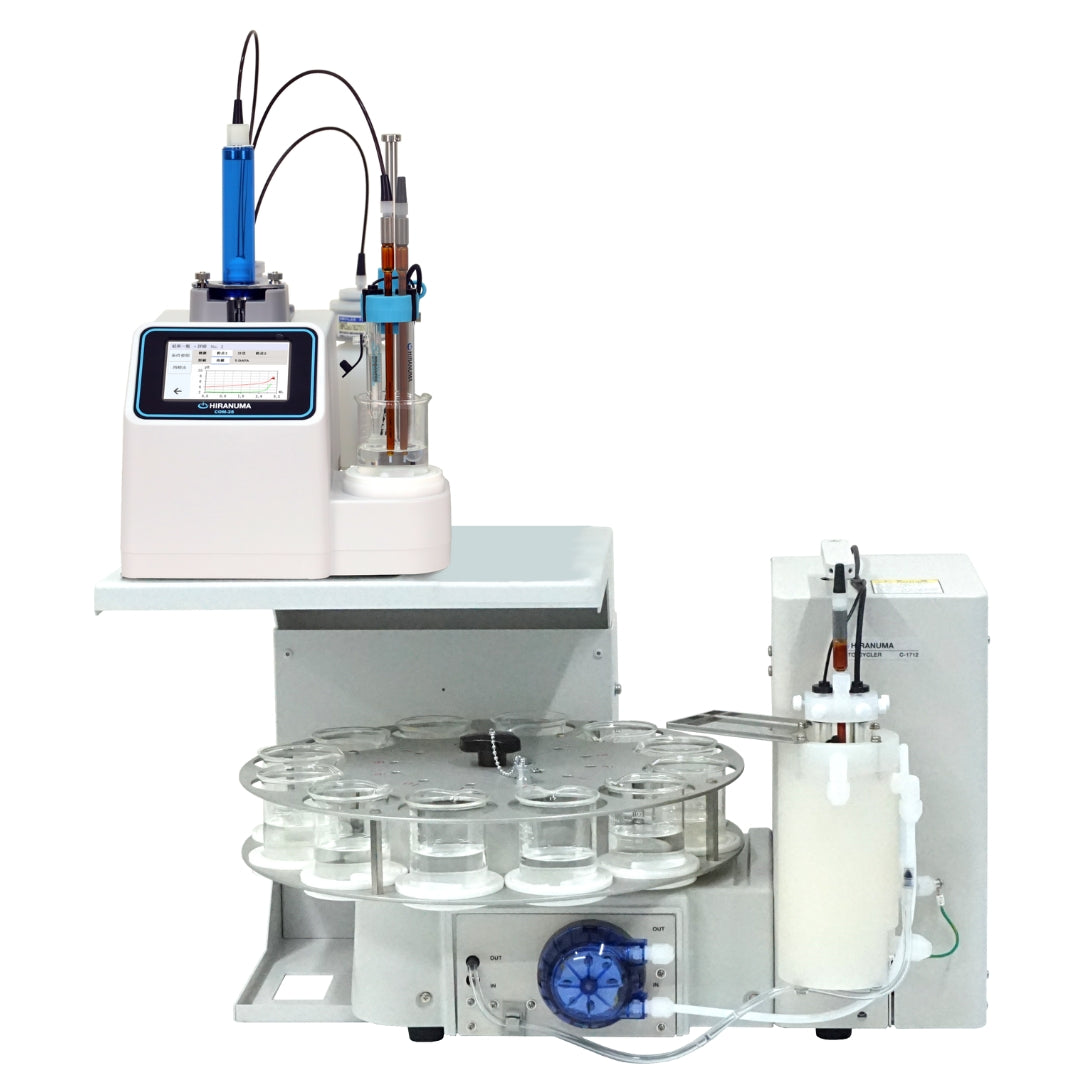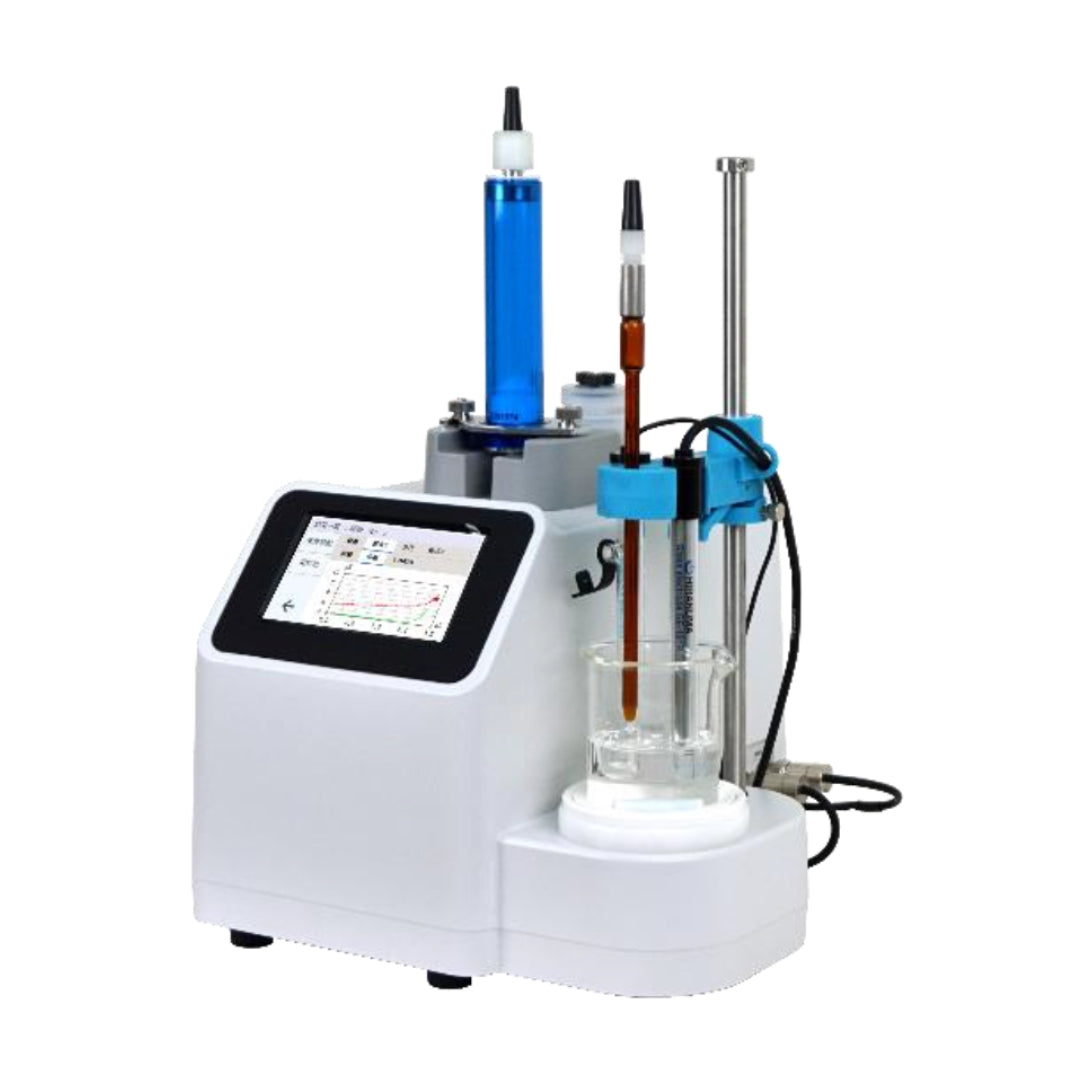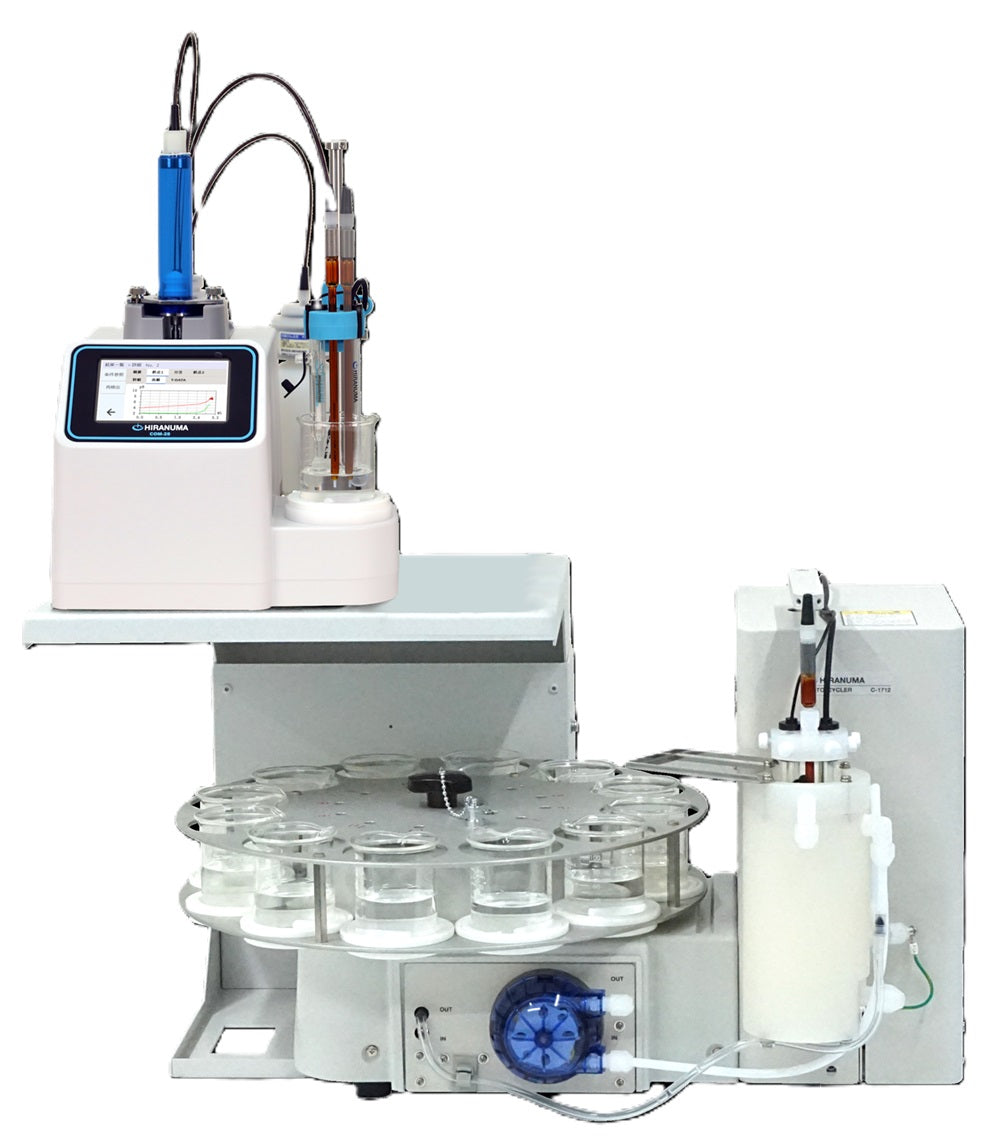| HIRANUMA APPLICATION DATA | Karl Fischer Titrator | Data No. | KF21 | Apr. 13, 2022 |
| Water contents | Drugs and Medicines – KF Coulometry, Japanese Pharmacopoeia – Suitability test |
1. Abstract
Water contents of drugs and medicines could be determined by Karl Fischer coulometric titrator. In coulometric titration, iodine of Karl Fischer reagent is generated by electrolysis and generated iodine quantitatively reacts with water.
In the method of “Water determination (Karl Fischer method)” in Japanese Pharmacopoeia Eighteenth Edition, the suitability test is described as a verification procedure when modifying the test procedures. As premises for complying the suitability test, it is possible to select and use the appropriate KF reagent from commercially available products.
In this report, the suitability test of Japanese Pharmacopoeia Eighteenth Edition was performed for thiamine chloride hydrochloride, also introduced in Application Data No. 9, with coulometric titration method. Please refer to Application Data No. 9 for the detail of sample addition procedure and the repeatability of measurement results for thiamine chloride hydrochloride.
Reference
1) Japanese Pharmacopoeia Eighteenth Edition
2. Apparatus and Reagents
| (1) | Apparatus | ||
| Titrator | : | HIRANUMA Karl Fischer Coulometric titrator AQ-series or MOICO-A19 | |
| Electrolytic cell | : | Standard Cell without drain valve | |
| Sampling tool | : | Ultra-micro solid sampler (for simulated sample) Syringe (for water standard) |
|
| (2) | Reagents | ||
| Anode solution | : | AQUALYTE RS-A (HIRANUMA) An alternative if it is difficult to prepare, HYDRANAL Coulomat AG (Honeywell) |
|
| Cathode solution | : | AQUALYTE CX (HIRANUMA) An alternative if it is difficult to prepare, HYDRANAL Coulomat CG (Honeywell) |
|
| (3) | Sample | ||
| Measurement sample | : | Thiamine chloride hydrochloride (Guaranteed reagent) | |
| Standard material | : | AQUALYTE Water Standard 1 (Assay: 1.002 mg/g, HIRANUMA) An alternative if it is difficult to prepare, HYDRANAL Water Standard 1 (Honeywell) |
3. Procedure
3.1. Preparation of measurement
| (1) | Fill 100 mL of anode solution and one ampoule of cathode solution into the electrolytic cell. |
| (2) | Set the ultra-micro solid sampler on the lid of cell. |
| (3) | Start blanking to attain stable background. |
3.2. Measurement of water standard before sample measurement
| (1) | Wash the syringe with the water standard and draw it into syringe. |
| (2) | Weigh the syringe and record its read (Size 1 [g]). |
| (3) | Inject 1 mL of the water standard from rubber septum of titration cell. Measurement parameter is shown in Table 4.1. |
| (4) | Weigh the syringe again (Size 2 [g]). The difference of (Size 1-Size 2 [g]) is set as sample size. |
| (5) | Repeat the measurement of the water standard 3 times. |
3.3. Measurement of thiamine chloride hydrochloride as simulated sample
| (1) | After measurement of the water standard is finished, the device, setting parameters, and reagents are used without change, and the sample is measured subsequently. Firstly, start blanking to attain stable background. |
| (2) | Take sample into the capsule and accurately weigh it. |
| (3) | Set the capsule on the sampler as pictured in the Fig.3.1. |
| (4) | Pull the plate of sampler to introduce capsule into the cell and start titration. Measurement parameter is shown in Table 4.1. |
| (5) | Set sample weight recorded in (2) to sample size. |
| (6) | Repeat the measurement of the sample 3 times. |
-

Fig.3.1 Introduction of sample.
3.4. Measurement of water standard after sample measurement
| (1) | After measurement of the sample is finished, the device, setting parameters, and reagents are used without change, and the water standard is measured again. Firstly, start blanking to attain stable background. |
| (2) | Weigh the syringe filled with the water standard and record its read (Size 1 [g]). |
| (3) | Inject 1 mL of the water standard from rubber septum of titration cell. Measurement parameter is shown in Table 4.1. |
| (4) | Weigh the syringe again (Size 2 [g]). The difference of (Size 1-Size 2 [g]) is set as sample size. |
| (5) | Repeat the measurement of the water standard 3 times. |
3.5. Evaluation of suitability test result
| (1) | When the amount of water detected in sample measurement is at the 1000 μg level, the recovery rate of the water standard is within the range of 97.5 to 102.5%, it is judged that the measurement system is appropriate for the measurement of this sample. |
| * When the amount of water detected is 100 μg level, the criterion of recovery rate is 90 to 110%. |
4. Parameters and results
Table 4.1 Parameters
| Condition File | ||
| Cal Mode | 0:Sample weight (net) | |
| X=(H2O-BLANK)/SIZE | ||
| Interval Time | 30 | sec |
| Current | MEDIUM | |
| S.Timer | 10 | min |
| Blank Value | 0 | ug |
| Unit Mode | AUTO | |
| Auto Interval | 0 | g |
| Minimum Count | 5 | ug |
| Back Ground | ON | |
| Sample Size Input | Every Time | |
| Cell Type | 2-Chamber (Standard) |
* The above parameter settings are examples for a simulated sample.
They should be set according to the parameters for the suitability test to be implemented with actual sample.
Table 4.2 Results of water content measurement
| Sample | Sample size (g) |
Water (μg) |
Water content |
Statistics result | |
| Water standard 1 | 0.9988 | 996.1 | 997.3 ppm | Avg. | 995.5 ppm |
| (Before sample measurement) |
1.0352 | 1027.7 | 992.8 ppm | SD | 2.4 ppm |
| 1.0804 | 1076.6 | 996.5 ppm | RSD | 0.24 % | |
| Recovery rate | 99.4 % | ||||
| Thiamine chloride | 0.0330 | 1370.9 | 4.1542 % | Avg. | 4.1256 % |
| hydrochloride | 0.0270 | 1119.8 | 4.1474 % | SD | 0.0439 % |
| 0.0293 | 1194.0 | 4.0751 % | RSD | 1.06 % | |
| Water standard 1 | 1.0800 | 1078.5 | 998.6 ppm | Avg. | 998.5 ppm |
| (after sample measurement) |
1.0194 | 1017.8 | 998.4 ppm | SD | 0.1 ppm |
| 1.1216 | 1119.9 | 998.5 ppm | RSD | 0.01 % | |
| Recovery rate | 99.7 % | ||||
* Assay of water standard: 1.002 mg/g (1002 ppm)
5. Note
(1) About suitability test
| According to the Japanese Pharmacopoeia Eighteenth Edition, the suitability test is implemented for the verification when the procedures of sample measurement are changed. Please check the latest version of Japanese Pharmacopoeia before conducting the suitability test. The condition parameters set in the device and the procedure of sample addition used in this report are examples for simulated samples. Adapt these to the actual sample to be verified by the suitability test. |
(2) About selection of KF reagent
| From the Eighteenth Edition of Japanese Pharmacopoeia, the suitability test was adopted and the specific description on the preparation of Karl Fischer reagent was deleted. The purpose of this is as follows; as premises for complying the suitability test, it is possible to select and use the appropriate KF reagent from commercially available products, considering the solubility and interfering reaction according to the properties of the measurement sample. |
(3) About selection of concentration level of the water standard used in the suitability test
| First, select 1000 μg or 100 μg, whichever is closer from the expected water detection amount in the actual sample measurement. Use water standard 1 (1000 ppm level) as the standard material for 1000 μg of water detection amount, and use water standard 0.1 (100 ppm level) for 100 μg. The injection amount of both type of water standard is adjusted to about 1 g to detect the water close to the above μg values. The criterion of recovery rate are 97.5 to 102.5% for 1000 μg of water detection amount, and 90.0 to 110.0% for 100 μg. |
| Keywords: | Karl Fischer, Coulometric titration, Japanese Pharmacopeia, Suitability test |

